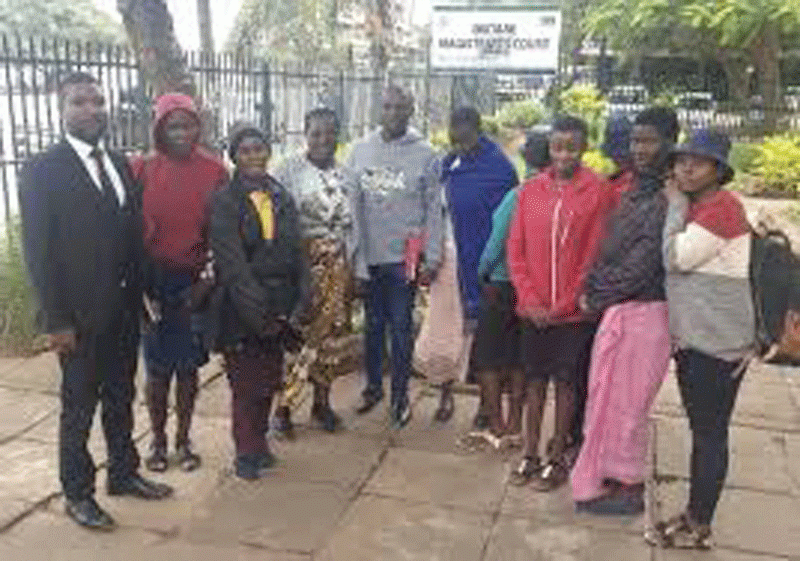
ACE YOUR INTERVIEW
Once a month, every second week of the month to be precise, I write on business, money and career. In this article I look at how you can score top marks on your interview. I enlisted the help of my friend, Farai Nyamangara, who is a human resources consultant. The job interview process is nerve racking enough as it is but I have some tips that you can utilise as you prepare for your interview. The interview process is broken down into three categories, pre-interview, the actual interview and post-interview.Pre-InterviewThis stage it is all about the preparation. Preparation is key so one needs to ensure that they do so adequately.
- Do basic research about the company you are being interviewed by. Know what they are about and what they do.
- Understand the job you are applying for. Get your hands on a job description and have the answer to why you would be the best person for the job. Make sure you are truthful. Do not lie about qualifications and skills you do not have because the employer will expect to see these at work when they employ you.
Find someone who can help you practise your interview questions. You do not necessarily need to exhaust all possible questions from your potential employer but it also involves mentally preparing yourself for the interview and gaining confidence that you will be successful.
- Be wary of cramming the interview questions as they may come in a different format to what you have crammed. Just get the gist of the questions.
- Make a copy of your curriculum vitae (CV) and know what you put on it. You do not want to look confused when the interviewer refers to something on your CV that you may have forgotten about.
- Do research of the industry’s salary trends for the position you are being interviewed for plus factor in how much you believe you are worth, so you have an answer for when you are asked how much you expect to earn.
- Know where the interview is being held and figure out the transport logistics. If you use public transport know where you will board buses and where you will drop off. Give yourself ample time to get there, there may be long queues at the rank, police on the road or other challenges that your transport may encounter. If you are driving there, know the route you will take and make provision for possible traffic congestion or other problems, for instance getting lost.
- Decide on what you are going to wear to your interview. Some basic guidelines:
a. Be well groomed. Hair and finger nails neat. Ladies keep your nails nail polish free. Men a hair cut will do, ladies should have their hair tied back if it is long so they do not have hair falling in their face and being a distraction. Teeth should be brushed, apply deodorant and make sure your clothes are clean and crinkle free.b. Ladies, be modest. Wear nothing revealing or too short. A knee length skirt is appropriate as are trousers that are not too tight, especially in the front. It is best to show no cleavage. Wear closed shoes.c. Men wear a dark suit, plain shirt and solid plain tie. A black tie, white shirt and solid tie are fail safe. d. Keep your fragrance light and not overwhelming.
- Take note of anything the interviewer asks you to bring upon inviting you to the interview, for example, specific paperwork, pen, pencil, etcetera, depending on the selection technique of their choice.
THE INTERVIEW
- Arrive at least ten minutes early to allow yourself time cool down and acclimatise yourself to the environment.
- Follow the interviewer’s lead.
- Answer your questions with confidence and speak clearly and audibly. Avoid using phrases like “ummm” frequently.
- Show the interviewer that you are fully capable of doing the job in question hence the importance of fully appreciating the vacancy in question.
- Let the interviewer see your competency and as intimidating as the interviewer may be it is important you exude confidence. Fake it until you make it.
- Most interviewers will ask if you any questions ask if you have any. If the interviewer has not already told you what you will be earning or asked what you expect to earn now would be the time to ask them. The timing of this question is important. If the interviewer does not bring it up wait for the end of the interview to find out.
POST INTERVIEW
- Most interviewers will give you an indication of when you can expect feedback so more often than not it is a waiting game, as tough as it may be.
- In some instances the timeline may pass and you will need to make a follow-up phone call. You will need to use your discretion.
- Ensure that the contact details on your CV are up to date and correct.
- Check your email frequently as your interviewer may contact you via email instead of telephone.
- You may be invited back to a second round of interviews, it could be one with a smaller pool of candidates or it may be the contract negotiation interview.
All the best with your interview, if you implement these pointers you should ace your interview.











